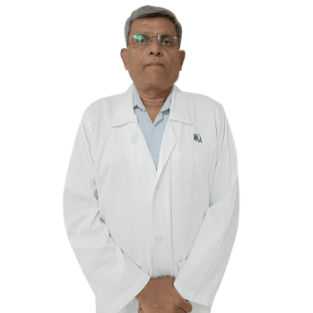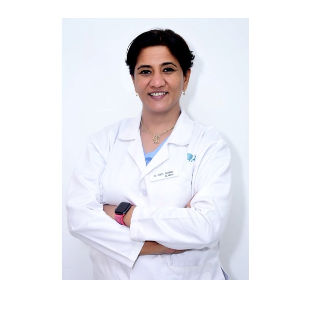Poor Ovarian Reserve: A Comprehensive Guide to Diagnosis & Hope
Understand poor ovarian reserve, its causes, symptoms, and diagnosis through AMH, FSH, and AFC tests. Explore fertility treatment options, lifestyle strategies, and ways to preserve reproductive health with expert guidance.


Receiving a diagnosis of poor ovarian reserve (POR) can feel overwhelming and isolating. You might be grappling with complex medical terms and a sudden shift in your family-building plans. Simply put, your ovarian reserve is an estimate of the number and quality of eggs remaining in your ovaries. A "poor" or "diminished" reserve means that this number is lower than expected for your age. But here's the crucial message: this diagnosis is not an absolute roadblock to motherhood. It is a piece of information—a critical data point that helps you and your doctor create a smarter, more effective fertility strategy. This guide is designed to demystify poor ovarian reserve, walking you through everything from its causes and diagnosis to the latest treatment options and empowering lifestyle changes. Our goal is to replace fear with knowledge and uncertainty with a clear action plan.
What is Poor Ovarian Reserve (POR)?
Poor ovarian reserve is a term used in fertility medicine to describe a situation where the ovaries contain fewer eggs than anticipated for a person's current age. It's a quantitative issue, primarily concerning the number of eggs, though it often correlates with a decline in egg quality. Every individual is born with a finite number of eggs, which naturally depletes over time through a process called atresia (natural cell death). This depletion accelerates significantly after the mid-30s. POR simply means this process is happening faster than the average timeline.
While age is the single biggest predictor of ovarian reserve, it's not the whole story. Poor ovarian reserve can sometimes affect younger women in their 20s and early 30s, a situation that underscores the difference between chronological age and biological (ovarian) age.
Diminished Ovarian Reserve (DOR) vs. Premature Ovarian Insufficiency (POI)
- It's important to distinguish between these two terms. Diminished ovarian reserve (DOR) is often used interchangeably with POR and indicates a reduced number of eggs. Premature ovarian insufficiency (POI), previously known as premature menopause, is a more severe condition where the ovaries stop functioning normally before age 40, often leading to irregular periods and menopausal symptoms. All women with POI have a very poor ovarian reserve, but not all women with POR have POI.
Key Causes and Risk Factors of Poor Ovarian Reserve
Understanding the "why" can be a key part of processing the diagnosis. The causes are varied.
Genetic and Chromosomal Causes
Certain genetic conditions are strongly linked to a depleted egg supply. These include:
- Turner syndrome: A chromosomal disorder affecting females.
- Fragile X syndrome premutation: Carriers of this genetic mutation are at a higher risk for POI.
- A family history of early menopause or fertility problems.
Medical Treatments and Surgeries
- Chemotherapy and Radiation: These life-saving cancer treatments can be toxic to ovaries, damaging eggs.
- Ovarian Surgery: Operations for endometriosis, ovarian cysts, or other conditions can inadvertently remove healthy ovarian tissue, reducing the total egg count.
Lifestyle and Environmental Factors
While more research is needed, some factors are believed to potentially accelerate ovarian aging:
- Smoking: This is a well-established risk factor that can advance the depletion of eggs by several years.
- Environmental Toxins: Exposure to certain pesticides, plastics, and industrial chemicals may have a negative impact.
- Severe Endometriosis: This condition can cause inflammation and damage to the ovarian cortex where eggs are stored.
- Autoimmune Diseases: Some can trigger an inflammatory response that attacks the ovaries.
In many cases, however, the cause of poor ovarian reserve remains unknown (idiopathic).
Consult Top Specialists Here
Recognising the Signs and Symptoms
One of the most challenging aspects of POR is its stealthy nature. Most women with diminishing reserve experience no obvious physical symptoms. Ovulation and menstrual cycles may continue regularly, offering a false sense of security. The first sign for many is the inability to conceive after trying for 6-12 months.
There are subtle clues, especially if you are under 35. Some include:
- Shortened Menstrual Cycles: A cycle that gradually shortens to 21-25 days can indicate a declining reserve, as the follicular phase shortens.
- Very Heavy Menstrual Flow or a sudden change in flow.
- A History of multiple miscarriages can sometimes be linked to egg quality issues associated with POR.
If you have been trying to conceive without success or have any of these red flags, it's time to consult a specialist. You can book a consultation with a fertility expert on Apollo24|7 to discuss your concerns and get preliminary advice.
How is Poor Ovarian Reserve Diagnosed?
Diagnosis relies on a combination of blood tests and ultrasound, providing a more complete picture than any single test alone.
The Gold Standard Tests: AMH, FSH, and AFC
- Anti-Müllerian Hormone (AMH): This is the most sensitive marker. Produced by the small follicles in your ovaries, AMH levels directly correlate with your remaining egg count. A low AMH level suggests a poor ovarian reserve.
- Follicle-Stimulating Hormone (FSH): Measured on day 3 of your cycle, a high FSH level indicates your pituitary gland is working harder to stimulate the ovaries to produce a follicle—a sign that the ovaries are struggling.
- Estradiol: A high Day 3 estradiol level can falsely suppress FSH, so it's often measured alongside it for an accurate interpretation.
Get The Tests Here
The Antral Follicle Count (AFC) Ultrasound
- This is a transvaginal ultrasound performed at the start of your menstrual cycle. A doctor counts the number of antral follicles (small, resting follicles between 2-10mm in diameter) visible on each ovary. This count is a direct visual assessment of the cohort of eggs available for that month's cycle. A low AFC (typically less than 5-7 total) is indicative of POR.
Apollo24|7 offers convenient home collection for essential fertility tests like AMH and FSH, making initial screening easier.
Coping with the Diagnosis
A POR diagnosis can trigger grief, anger, and anxiety. It’s a loss of the future you had imagined. Acknowledging these feelings is vital. Seek support from a therapist specializing in infertility, join support groups (online or in-person), and communicate openly with your partner. This is a medical diagnosis, not a personal failure.
Treatment Options and Fertility Strategies
The treatment path is highly personalized based on your age, test results, and personal goals.
Conventional Fertility Treatments
- In Vitro Fertilization (IVF) with Own Eggs: This is often the primary route. Protocols are tailored for POR, using higher doses of stimulation medications to recruit as many follicles as possible. However, response can be variable. Strategies like "mini-IVF" or using estrogen priming protocols are common.
- The Role of Donor Eggs: Using donor eggs from a young, healthy donor significantly increases the chances of a successful pregnancy for women with very poor reserve or those who have had failed IVF cycles. It is one of the most successful treatments in all of reproductive medicine.
Complementary and Lifestyle Approaches
While they cannot reverse POR, these strategies aim to improve the environment for the existing eggs, potentially enhancing quality.
- Nutrition and Diet for Ovarian Health: Focus on an anti-inflammatory, antioxidant-rich diet: colorful fruits and vegetables, lean proteins, healthy fats (like omega-3s from fish and walnuts), and whole grains.
Supplements: CoQ10, DHEA, and Others - Coenzyme Q10 (Ubiquinol): An antioxidant that may improve mitochondrial function in eggs, potentially boosting energy and quality. Studies show promise, particularly for women over 40.
- DHEA: A hormone precursor that some studies suggest can improve ovarian response and pregnancy rates in women with DOR. Important: Only take DHEA under a doctor's supervision, as it can have side effects.
- Vitamin D: Crucial for hormonal regulation and immune function. Many women are deficient.
Prevention and Proactive Ovarian Health
You can't stop aging, but you can make choices that support overall reproductive health:
- Avoid smoking.
- Maintain a healthy weight.
- Manage stress through yoga, meditation, or therapy.
- Consider elective egg freezing in your late 20s or early 30s if you anticipate delaying childbearing, as this effectively preserves your current ovarian reserve.
Conclusion
A diagnosis of poor ovarian reserve can feel like a door closing, but in reality, it's a signpost redirecting you to the path that is most likely to lead to success. It empowers you with knowledge, allowing you to bypass months of ineffective attempts and move straight to evidence-based strategies. Whether that path involves aggressive IVF with your own eggs, the generous gift of donor eggs, or exploring alternative family-building options like adoption, your journey to parenthood is not over. It has simply taken a new direction. Arm yourself with information, build a supportive medical team, and be kind to yourself throughout the process. The goal is a healthy baby, and there are more ways to reach that goal than ever before.
Consult Top Specialists Here
Consult Top Specialists Here
Dr. K Anusha
Obstetrician and Gynaecologist
4 Years • MBBS, DGO
Yemmiganur
SRINIVASAA HOSPITAL, Yemmiganur

Dr Jaya Kumar Agarwal
Obstetrician and Gynaecologist
25 Years • MBBS , DGO , DNB (obstetric and gynecology) DGE diploma in Gyne endoscopy (Germany )
Delhi
Apollo Hospitals Indraprastha, Delhi

Dr Bhawna Garg
Gynaecological Oncologist
26 Years • MBBS, MS, (PGI MS ROHTAK) FELLOWSHIP GYNECOLOGY ONCOLOGY, (CANCER INSTITUTE CHENNAI)
Delhi
Apollo Hospitals Indraprastha, Delhi

Dr. Vineet Mishra
Infertility Specialist
36 Years • MD, Phd, DSc
Ahmedabad
Apollo Hospitals - Gandhinagar, Ahmedabad, Ahmedabad

Dr. Vinita Sharma
Obstetrician and Gynaecologist
15 Years • MBBS, MD, MRCOG
Noida
Apollo Hospitals Sector 26, Noida
(75+ Patients)
Consult Top Specialists Here
Dr. K Anusha
Obstetrician and Gynaecologist
4 Years • MBBS, DGO
Yemmiganur
SRINIVASAA HOSPITAL, Yemmiganur

Dr Jaya Kumar Agarwal
Obstetrician and Gynaecologist
25 Years • MBBS , DGO , DNB (obstetric and gynecology) DGE diploma in Gyne endoscopy (Germany )
Delhi
Apollo Hospitals Indraprastha, Delhi

Dr Bhawna Garg
Gynaecological Oncologist
26 Years • MBBS, MS, (PGI MS ROHTAK) FELLOWSHIP GYNECOLOGY ONCOLOGY, (CANCER INSTITUTE CHENNAI)
Delhi
Apollo Hospitals Indraprastha, Delhi

Dr. Vineet Mishra
Infertility Specialist
36 Years • MD, Phd, DSc
Ahmedabad
Apollo Hospitals - Gandhinagar, Ahmedabad, Ahmedabad

Dr. Vinita Sharma
Obstetrician and Gynaecologist
15 Years • MBBS, MD, MRCOG
Noida
Apollo Hospitals Sector 26, Noida
(75+ Patients)
More articles from General Medical Consultation
Frequently Asked Questions
Can you get pregnant naturally with a poor ovarian reserve?
Yes, natural pregnancy is possible, especially if you are young, as egg quality may still be good. However, the probability is lower each month due to fewer available eggs. It's advised to consult a fertility specialist to understand your timeline and options.
What is a normal AMH level for my age?
AMH levels decline with age. Rough guidelines (ng/mL) are:
Under 35: 1.5 - 4.0
35-37: 1.0 - 3.0
38-40: 0.5 - 2.0
Over 40: 0.3 - 1.0
Values below these ranges may indicate diminished ovarian reserve. Your doctor will interpret your result in context.
Do any foods improve ovarian reserve?
No food can increase the number of eggs you are born with. However, an antioxidant-rich diet (berries, leafy greens, nuts, seeds) can help protect the existing eggs from oxidative stress and may support overall egg quality.
Is poor ovarian reserve the same as early menopause?
No. Poor ovarian reserve (or diminished ovarian reserve) means a low egg count but you are still having periods and ovulating. Premature ovarian insufficiency (POI) is more severe and involves loss of function, leading to irregular periods and menopausal symptoms before age 40.
What are the next steps after a poor ovarian reserve diagnosis?
Schedule a consultation with a reproductive endocrinologist (fertility specialist). They will review all your results, discuss your family-building goals, and outline a personalized treatment plan, which may include IVF, considering donor eggs, or exploring other paths to parenthood


.webp)


